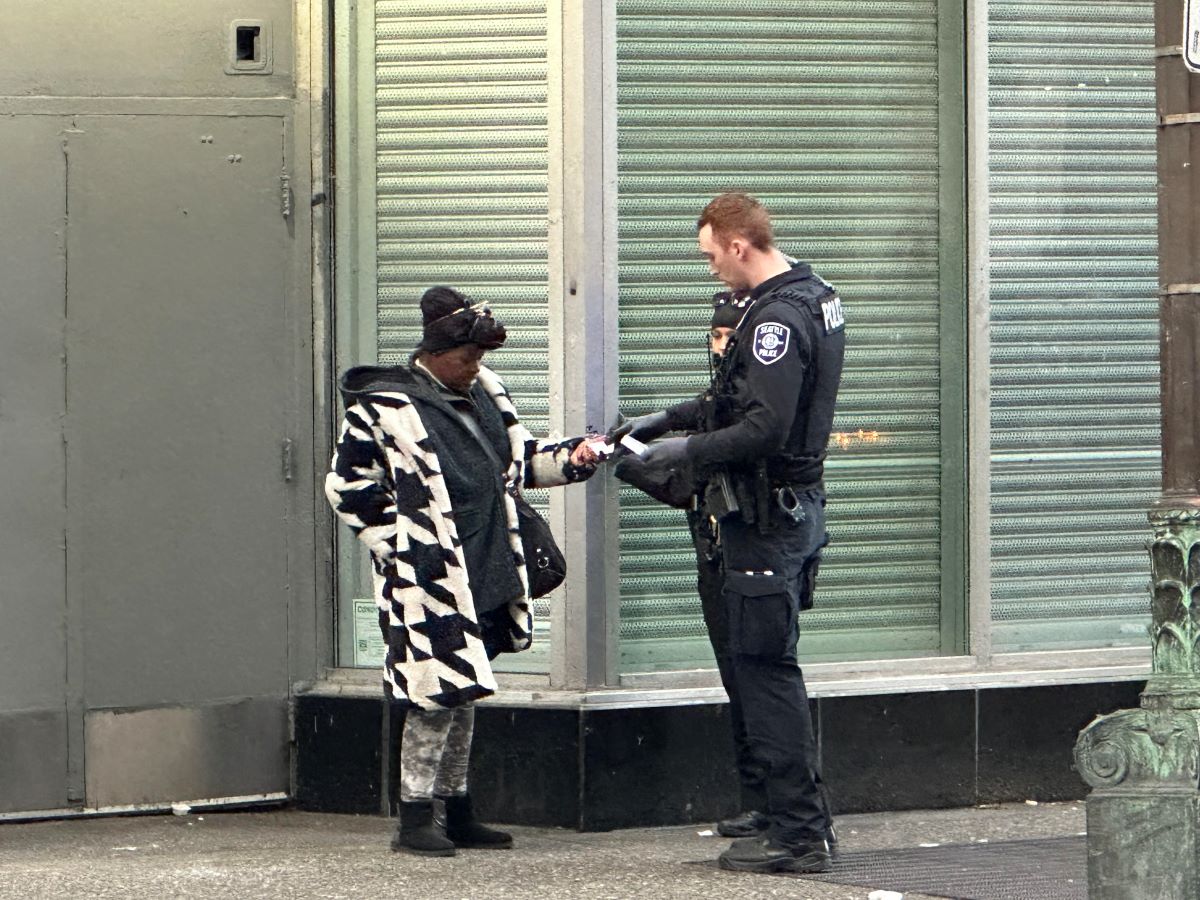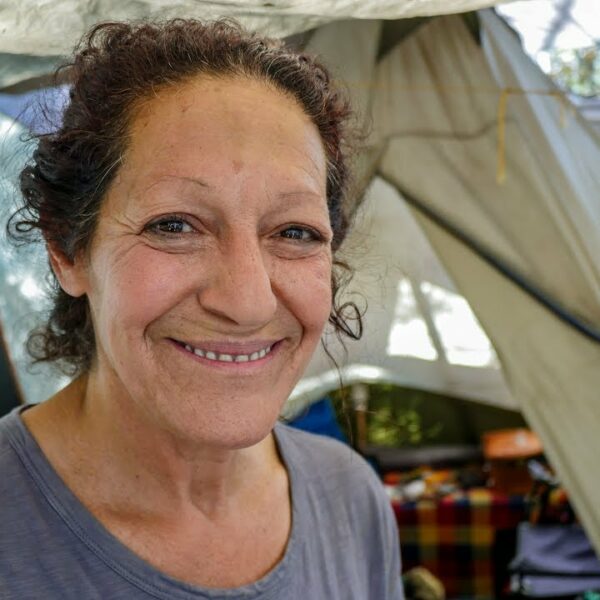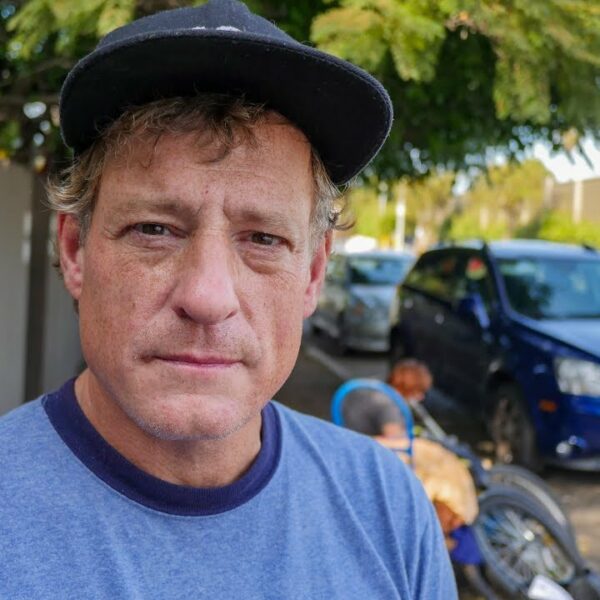Homelessness Is So Horrific It Should Be a Crime … And It Is
Sadly, however, the people going to jail over homelessness are not the shifty landlords pulling off illegal self-help evictions. They aren’t the corporate magnates who decided to keep wages stagnant while raising rental rates by astronomical proportions. Charging half a million dollars for an average-sized house seems downright criminal, but sometimes justice isn’t just.
You might think the prisons are absolutely brimming with the sly executives who filed over 200,000 illegal evictions while the moratoriums were still in place. This assertion, however, is incorrect.
The people currently going to jail over homelessness are the same people living through it, struggling with it, and sometimes failing to survive it.
The Criminalization of Homelessness in Brief: A Look at Victim-Blaming Legislation
“It’s cruel, and it’s abominable to allow our neighbors to live on the streets in the richest country in world history, with no access to shelter and no access to medical care.”
— Will Knight on the unfathomable cruelty of criminalizing homelessness
According to research presented by the National Homelessness Law Center, you can find anti-homeless legislation in practically every state in the US.
Laws designed to keep the homeless population in jail can be difficult to spot because they don’t expressly mention their target. These hostile pieces of legislation are misleadingly classified as “quality of life ordinances,” and they are often enforced under the guise of public safety.
The sad truth is that right now, on any given night, in every far-flung region across the country, a homeless person can go to jail, receive a citation, or, in some extreme cases, become a tragic victim of police brutality, all because they were:
- Camping in a public park
- Sitting in a public space
- Storing their belongings on a public street
- Sleeping in a vehicle
- Standing in the same place for too long
- Engaging in various life-sustaining activities and more
These ordinances are examples of victim-blaming legislation because they penalize the people they proclaim to protect.
To stop perpetuating the vicious cycle of homelessness, we have to come together and fight homeless criminalization.
We spoke with Will Knight, the Decriminalization Director for the National Homelessness Law Center. He filled us in on how to fight the criminalization of homelessness.
Step 1: Educate the Public on the True Facts About Homelessness
“I think your work is one of the best ways,” said Knight, referring to Invisible People’s reporting on the subject. “We need to educate each other. We need to call out the false narratives and the demonization and the vilification of homeless communities everywhere that we see it.”
This first step is of the utmost importance. False narratives about homelessness abound. They range from misrepresenting the most prevalent underlying causes of homelessness and emphasizing personal choice over structural policy to misrepresenting individual members of the homeless population by portraying them as criminals, addicts, or violent psychopaths.
All these stereotypes are untrue and harmful because they influence the public, who, in turn, influence the policies and legislation. This leads to a scenario where criminalization of homelessness prevails over other, more effective strategies like Housing First and financial intervention.
Step 2: Establish Common Ground with Our Unhoused Neighbors
“We need to find our common ground and our human empathy for people who are suffering, for vulnerable people who need our help, which is something we all have common ground on,” Knight explained. “Something I found everyone agrees with is that people should not be subjected to living in these conditions. It’s cruel and abominable to allow our neighbors to live on the streets in the richest country in world history with no access to shelter and medical care.”
Establishing commonality with our unhoused neighbors should be easy. After all, we are all human beings, and most working-class Americans are one measly paycheck away from homelessness. It’s a harsh reality, but it’s one worth holding up a mirror to as a reminder of how close we truly are.
Step 3: Advocate for Accessibility
One of the biggest issues of homelessness is not just the lack of housing but also, importantly, the lack of access to other basic needs. We can fight the criminalization of homelessness by fighting for alternatives like making housing and other needs accessible for all.
“I already mentioned the lack of access to shelter and medical care, but there are so many other things our unhoused neighbors can’t obtain. Often no access to food or other resources necessary for human beings to live cripples members of the homeless community, giving way to illnesses and deaths.”
“Hydration deaths happen a lot of the time, too, because this population cannot access sanitary water. Helping educate each other about the humanity of our most vulnerable neighbors means advocating for accessibility to the most vital, most basic of needs,” Knight said.
Step 4: Advocate for Policies that Prioritize Housing as a Human Right
“Educating each other about policy, speaking about why criminalization is more harmful and, for what it’s worth, more costly, is imperative to combatting the criminalization of homelessness,” said Knight. “That’s another big false narrative that our politicians are too cowardly to stand up for good policy. They are merely acting in the voters’ interests.”
“Criminalization policies are easy to sell politically because of the narrative of the danger that homeless people pose, which is false. And because they can pitch criminalization policies and tell the voters that they have no fiscal impact, which is also false, they peddle this harmful message to the masses.”
Expounding on the cost of enforcing anti-homeless legislation, Knight said, “The police response to homelessness actually comes at a huge cost. The cost of the legal process, from courts and prosecutors to defense attorneys, combined with the cost of caging people so they’re out of sight and out of mind, is astronomical.”
“In Phoenix, Arizona, for example, it costs roughly $45,000 per person per year to put somebody in a jail cell. In some other places, it’s a little bit less than that, but still in the realm of about $30,000 per year,” he said.
“If somebody doesn’t have special needs, that’s how much it costs to put them in a prison cell for a year. And for less… much, much less than that, we could provide the humanitarian services, shelter, and housing first that is empirically proven to actually redress and solve homelessness, and to help people get back on their feet.”
“The difference is politicians get to lie about the fiscal impact of one approach while ignoring the more effective solution entirely. And we have a social and cultural problem and addiction, a fetish almost, with using police and handcuffs and jail cells to solve our social problems.”
“Homeless criminalization is an easy thing to support for people who are ignorant about the reality of these policies and how they impact all of us, especially the vulnerable people at the center of them,” Knight explained. “Whereas, on the other hand, pitching humanitarian policy does have to come with an upfront cost because we haven’t been doing that. In fact, we’ve been dismantling support for vulnerable unhoused people since at least the Reagan era, when we dismantled HUD almost completely.”
In other words, negative public opinion and increased punitive responses to homelessness go hand in hand. Something else also goes hand in hand – The dismantling of social services and the lack of affordable housing fueling the homeless crisis.
Step 5: Advocate for Affordable Housing Instead of Imprisonment
“You can draw a direct line from the dismantlement of social services necessary to help vulnerable unhoused people from the Reagan era through to today,” Knight warned.
“You can also, just as easily draw a direct line to the increase of homelessness, meaning visible street homelessness, which translates to unsheltered people living out in public, and the dismantling of those policies, the collateral commoditization of housing, which has increased the cost, and the unavailability of affordable housing. At the end of the day, that lack of affordable housing is the actual number one reason for homelessness in the first place!”
Urge Your Local Legislators to Prioritize Housing Over Handcuffs
The criminalization of homelessness is popular amongst politicians because it appears to be what the public wants. To fight this cruel penalization and effectively address the homeless problem, we must all reach out to our local legislators and urge them to prioritize policies that make housing an irrevocable human right.













